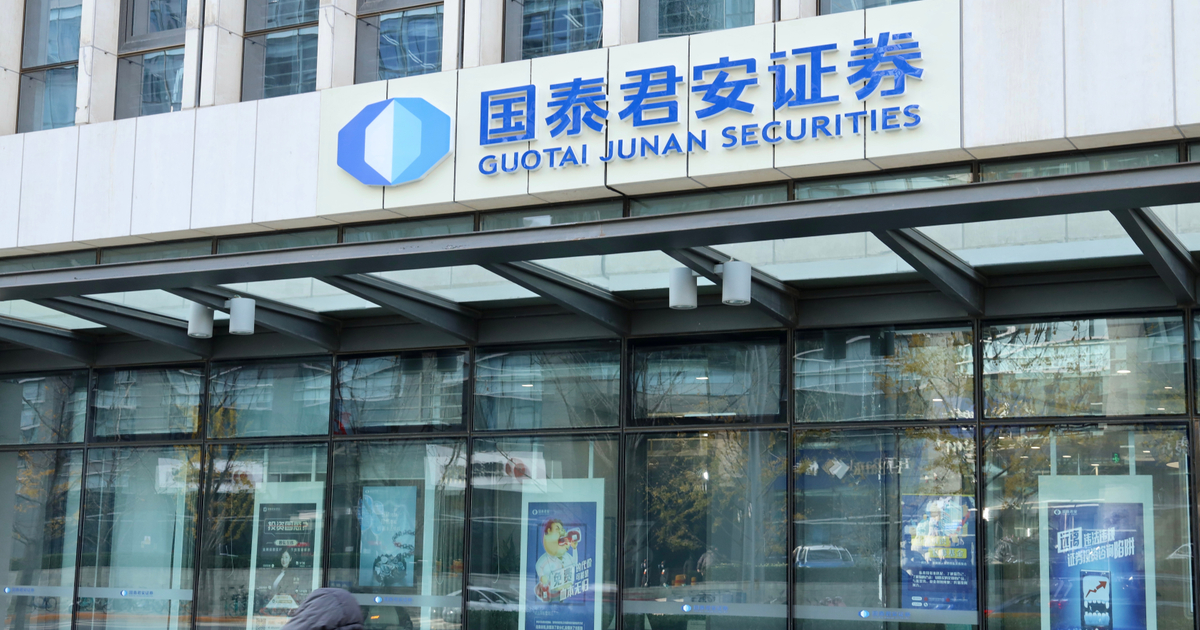S’pore sets aside S$180M on AI research; launches e-GIRO to shorten processing times: DPM Heng
DPM Heng made these announcements as part of three broad strategies on how the country can recover from Covid-19. The post S’pore sets aside S$180M on AI research; launches e-GIRO to shorten processing times: DPM Heng appeared first on...

Singapore is setting aside an additional S$180 million dollars to accelerate artificial intelligence (AI) research. It also announced the launch of two national AI programmes, and e-GIRO.
Singapore’s Deputy Prime Minister Heng Swee Keat made these announcements at the opening address for the Singapore FinTech Festival x Singapore Week of Innovation & Technology (SWITCH) on Monday (Nov 8).
These announcements were made as part of three broad strategies listed out by DPM Heng on how the country can recover from Covid-19.
In his opening address, DPM Heng noted that the market is far from perfect and there’s much more Singapore can and must do as it recovers from Covid-19. The country can recover faster by tapping on innovation by building momentum around tech to yield a step change, doubling down on innovation to improve lives, and maximizing the impact of innovation.
 Image Credit: Singapore FinTech Festival x SWITCH
Image Credit: Singapore FinTech Festival x SWITCH“The next few years will determine the trajectory of humanity for decades to come. We can collectively do much more to amplify the impact of innovation and the momentum of change, to build a better world,” Mr Heng said.
“We must rebuild a better world in the wake of the devastation caused by Covid-19. We must decisively tackle global challenges such as climate change.“
Two national AI programmes launched; S$180 million into AI research
Singapore launched two national AI programmes today – one in finance and one in government.
The national AI programme in finance will be an industry-wide AI platform for financial risk insights. It will focus on helping financial institutions better assess a company’s environmental impact, identify emerging environmental risks.
Mr Heng noted that over the next three decades an estimated US$100 trillion of climate aligned funding is needed to achieve the Paris Agreement targets. With the programme, Singapore-based banks and local FinTech companies will collaborate to better enable financial institutions to assess investments and the associated risks and checks against greenwashing.
The second AI programme would be on the government front and it aims to improve public sector service delivery in several weeks.
One area of this programme would be in the use of AI text analytics, or better sense making of the large number of feedback that frontline agencies receive each year. “This will allow us to better understand the pain points and serve citizens better,” Mr Heng said.
Another area for the government AI programme will be to provide better jobs matching, and to develop more personalised jobs and skills recommendations.
“This is particularly salient during the pandemic when many have been displaced and are looking to switch to other industries. We’re using AI to develop more personalized Jobs and Skills recommendations. Based on our pilot, this new tool has improved total job placements by 20 per cent.”
DPM Heng said that Singapore is seeing initial returns from its national AI strategy efforts. To further increase our impact. Singapore is setting aside an additional S$180 million dollars to accelerate fundamental and translational AI research.
This is on top of the S$500 million committed so far.
“One of the areas where we will focus more and invest more funds in, is in resource efficient AI. As a small country, our data sets are also small. So we need to better train our machines to learn from small but high quality data sets.”
Carbon tax and energy solutions
Mr Heng said that Covid-19 has been a stark reminder that global challenges such as climate change must be met with collective action.
“Climate change is probably the most severe threat to humanity. Our current trajectory, the 1.5 degrees Celsius global warming threshold, could be breached in the next 10 to 20 years,” he noted.
Countries around the world, including Singapore are pushing the boundaries of sustainability tech research and experimentation. But there is much more to be done. For solutions to go from pilot to scale, there needs to be the right market conditions.
Externalities of carbon emissions, like carbon tax, have to be correctly priced to curb climate change. “If we price the externalities correctly, this will also shape future investment decisions and spur decarbonisation efforts,” DPM Heng said.
There’s headroom to increase the current rate, and earlier this year Singapore has announced that it is reviewing carbon tax rates for 2024 and beyond. The review is ongoing and the decision will be announced early next year.
“Raising carbon taxes is not easy. In the short term, there will be upward cost pressure for households and companies. This will affect the cost of living and our competitiveness. But we will mitigate the short term consequences. Raising carbon taxes is necessary to spur and create a much more sustainable future for everyone in the long term,” he said.
Another area to build energy efficiencies is to put in place financial and physical infrastructures to enable markets to work across borders. For example, solar energy is one way this could work.
“Many parts of Southeast Asia and Australia have an abundance of sunlight and to fully harness the potential of renewable energy. We need a robust regional energy grid for markets to fully work,”
“We hope our pilots will import electricity and regional arrangements such as the Lao-Thailand-Malaysia-Singapore power integration project will serve as a pathfinder towards a broader ASEAN power grid.”
“The ongoing global energy crisis is a reminder that conditions are not always seamless. And we need to pace our transition well. If the fundamental market conditions are right, we will eventually arrive at our goal.”
E-GIRO
DPM Heng also announced the launch of E-GIRO today.
GIRO is a direct debit mechanism that allows an individual to set up a standing instruction for a billing organisation to make deductions from his or her bank accounts.
On average, there are around 1 million GIRO applications per year but the current application process is manual.
It takes on average three weeks to process an application and up to six weeks if further clarifications are needed. The digitalised process aims to significantly shorten processing times and improve user experience.
Singapore’s thriving startup ecosystem
DPM Heng noted that Singapore is a thriving startup ecosystem, having placed innovation at the forefront of all that it does.
In just the first half of this year alone, it has reached more than 350 deals with more than S$5 billion.
“We are building a culture of innovation throughout our economy, with close collaboration between companies, researchers, and government agencies.”
The country has a “steadfast commitment” to R&D over the decades and has committed S$25 billion to research innovation and enterprise in the coming five years.
As much as there are benefits from innovation and while we allow it to flourish and develop new ideas in the Republic, DPM Heng also cautioned about the need to have guardrails to protect against the downside of innovation.
As more people consume information through social media, he noted that there’s been growing concern over fake news, the rise of extreme behavior, and the effect of mental well being.
That’s even though media is a great way for people to connect and stay in touch, especially during the pandemic.
“We’re now seeing greater debates on the regulation of social media. An introduction of powers, protector of fake news.”
He also noted that AI has a “tremendous potential” for change, but it also needs to be ethically used.
Singapore is contributing to the ethical use of AI in various ways. One example is Veritas, a framework for financial institutions to ensure that the use of AI and data analytics is fair, ethical, accountable, and transparent.
Featured Image Credit: Singapore FinTech Festival x SWITCH

 ValVades
ValVades 
































